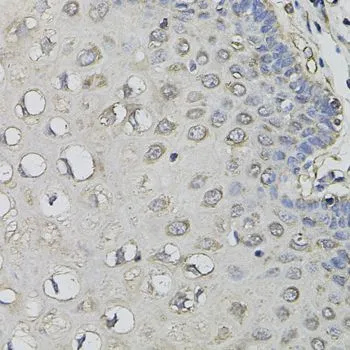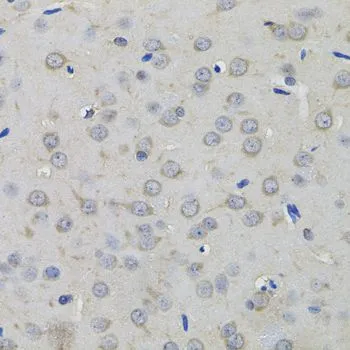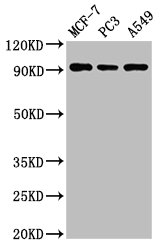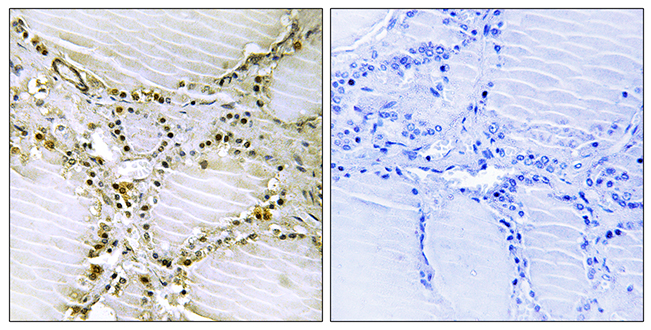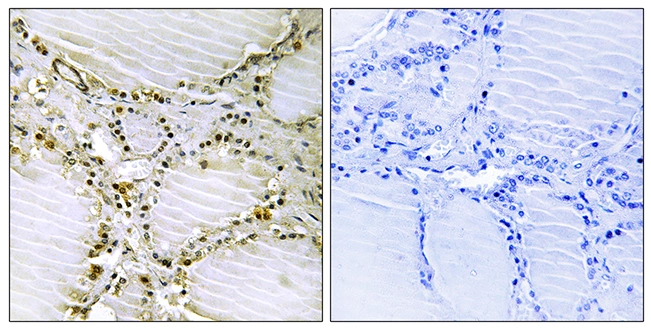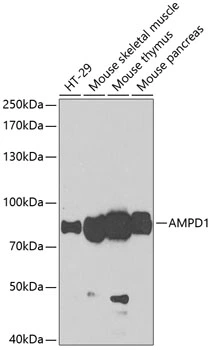
WB analysis of various sample lysates using GTX55510 AMPD1 antibody. The signal was developed with ECL plus-Enhanced. Dilution : 1:500 Loading : 25μg per lane
AMPD1 antibody
GTX55510
ApplicationsWestern Blot, ImmunoHistoChemistry, ImmunoHistoChemistry Paraffin
Product group Antibodies
ReactivityHuman, Mouse, Rat
TargetAMPD1
Overview
- SupplierGeneTex
- Product NameAMPD1 antibody
- Delivery Days Customer9
- Application Supplier NoteWB: 1:500 - 1:2000. IHC-P: 1:50 - 1:100. *Optimal dilutions/concentrations should be determined by the researcher.Not tested in other applications.
- ApplicationsWestern Blot, ImmunoHistoChemistry, ImmunoHistoChemistry Paraffin
- CertificationResearch Use Only
- ClonalityPolyclonal
- ConjugateUnconjugated
- Gene ID270
- Target nameAMPD1
- Target descriptionadenosine monophosphate deaminase 1
- Target synonymsMAD, MADA, MMDD, AMP deaminase 1, AMPD, adenosine monophosphate deaminase 1 (isoform M), adenosine monophosphate deaminase-1 (muscle), myoadenylate deaminase, skeletal muscle AMPD
- HostRabbit
- IsotypeIgG
- Protein IDP23109
- Protein NameAMP deaminase 1
- Scientific DescriptionAdenosine monophosphate deaminase 1 catalyzes the deamination of AMP to IMP in skeletal muscle and plays an important role in the purine nucleotide cycle. Two other genes have been identified, AMPD2 and AMPD3, for the liver- and erythocyte-specific isoforms, respectively. Deficiency of the muscle-specific enzyme is apparently a common cause of exercise-induced myopathy and probably the most common cause of metabolic myopathy in the human. Alternatively spliced transcript variants encoding different isoforms have been identified in this gene.[provided by RefSeq, Feb 2010]
- ReactivityHuman, Mouse, Rat
- Storage Instruction-20°C or -80°C,2°C to 8°C
- UNSPSC41116161

